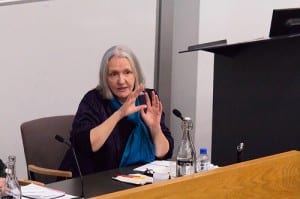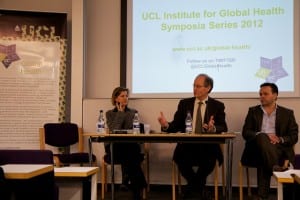A grey area: do the elderly hold the key to tackling non-communicable disease?
By news editor, on 6 December 2012
Written by Amelia Tait of the UCL Institute for Global Health.
On Tuesday 4 December, the Attlee Suite in the Houses of Parliament was filled to the brim with more than 140 audience members, policy makers, and global health experts from around the world meeting to discuss the growing global burden of non-communicable diseases.
Professor Anthony Costello, Director of UCL’s Institute for Global health, chaired the debate and opened by remarking that the “wicked problem” of NCDs accounts for 63% of deaths worldwide.
Non-communicable or lifestyle diseases, such as heart disease, stroke, cancer and diabetes are medical conditions of a non-infectious nature, and – in Costello’s words – are “the biggest killer of people in the world”.
Learning from HIV?
The panel’s experts led a debate on the ways in which the NCD movement can learn from the precedents set by the HIV/AIDS movement in the 1980s.
 Close
Close





